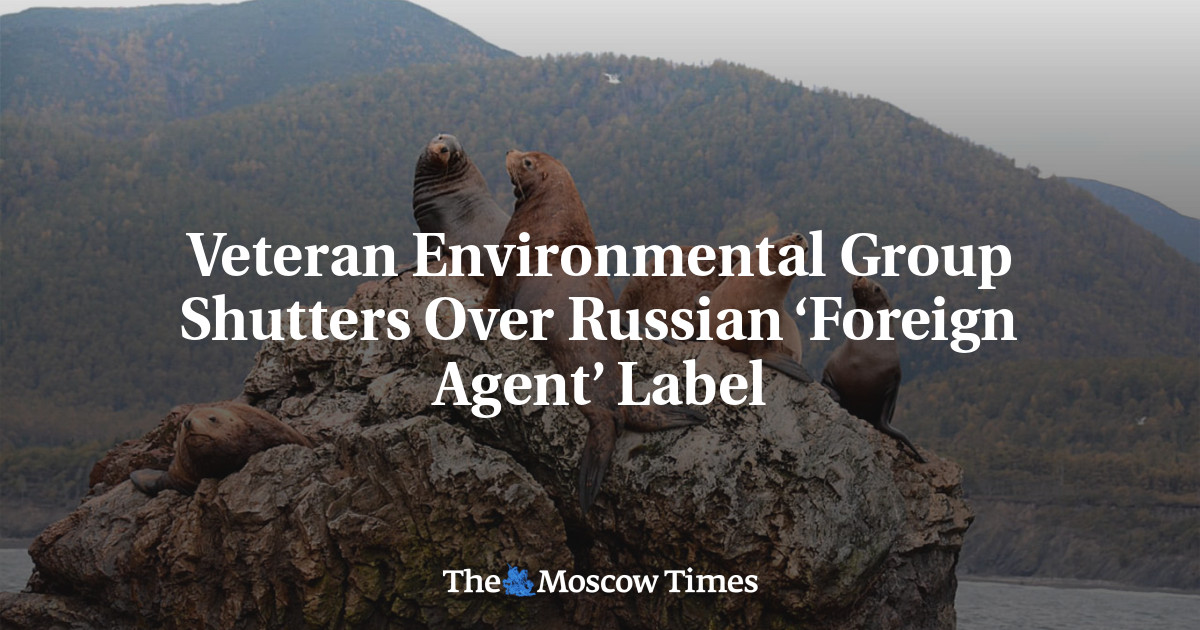
A veteran environmental watchdog in Russia’s Far East announced its closure over the weekend after authorities labeled it a “foreign agent.”
Sakhalin Environment Watch (SEW) said it “categorically disagrees” with Friday’s designation by the Russian Justice Ministry.
“Someone at the top has suddenly decided that we are under ‘foreign influence’ and engaged in political activities,” SEW said in a post on the Telegram messaging app Saturday.
“We never violated any laws, have never fallen under anyone’s influence and always worked only for the environmental safety of our country and the preservation of its unique wildlife.”
Since its creation in 1995, SEW had worked to protect wild salmon, bears, orcas and belugas around Russia’s Pacific Coast.
Led by activist Dmitry Lisitsyn, SEW has worked with local authorities and other figures to fight poaching, detect pollution and enact stricter regulations.
Last year, Lisitsyn and his watchdog successfully lobbied for the closure of a notorious facility — dubbed the “whale jail” — which kept nearly 100 whales reportedly bound for export to China in cramped enclosures.
In a statement announcing its closure, the watchdog said it had no choice but “to finish up our projects and liquidate the organization.”
The Sakhalin Environment Watch website ecosakh.ru was inaccessible by Monday afternoon.
Friday’s designation was not the first time SEW had been slapped with the “foreign agent” label.
Russian authorities labeled Sakhalin Environment Watch a “foreign agent” in 2015, but lifted the designation two years later after the watchdog returned a $159,000 donation from Hollywood actor Leonardo DiCaprio.
The latest designation came half a year after SEW won a European Court of Human Rights case contesting its original designation.
Individuals and organizations designated as “foreign agents” in Russia are subject to rigorous auditing and labeling requirements.
On Dec. 1, an expansion to the “foreign agents” legislation entered into force that allows authorities to assign the label to any person or group deemed to have fallen under “foreign influence” in addition to those who receive funding from abroad.